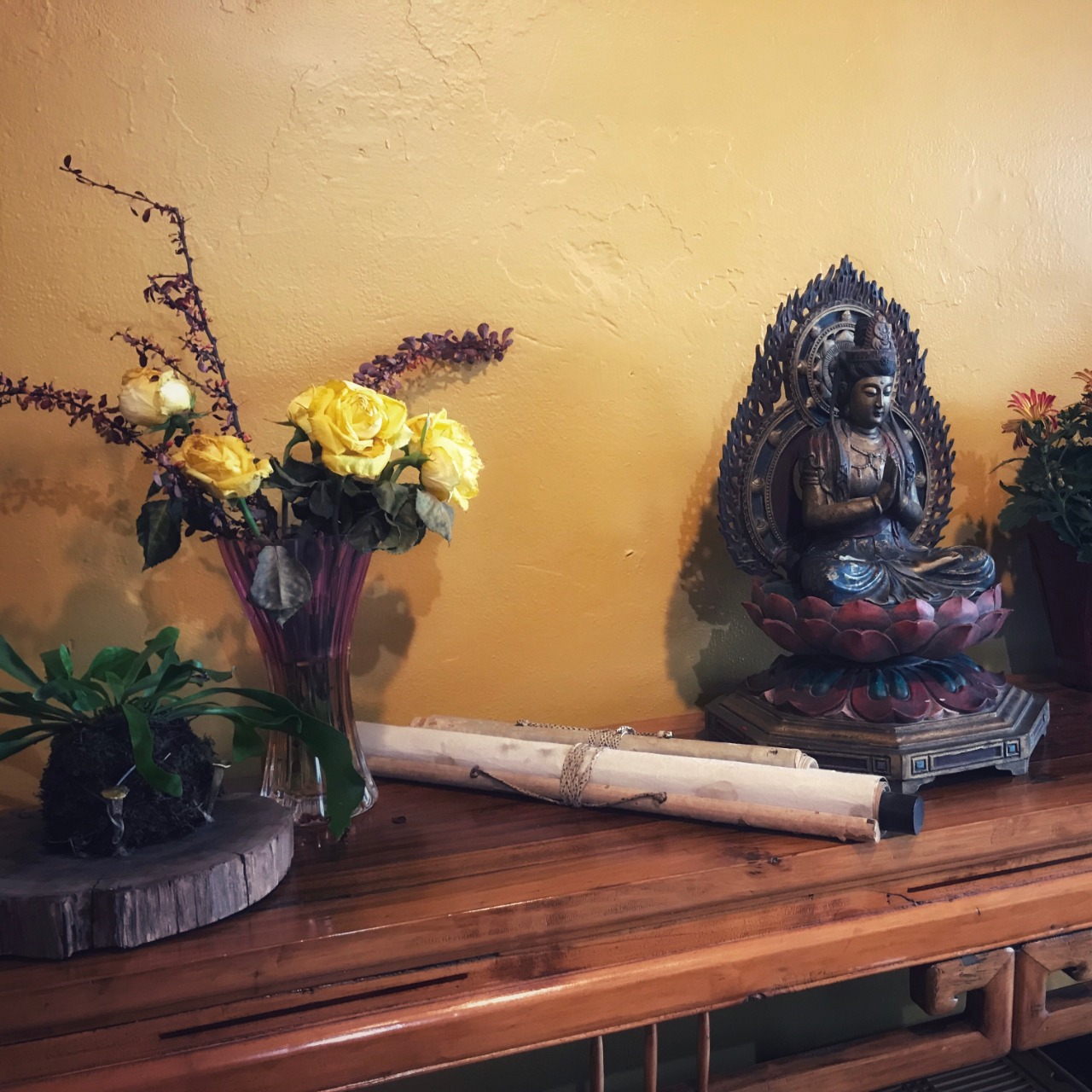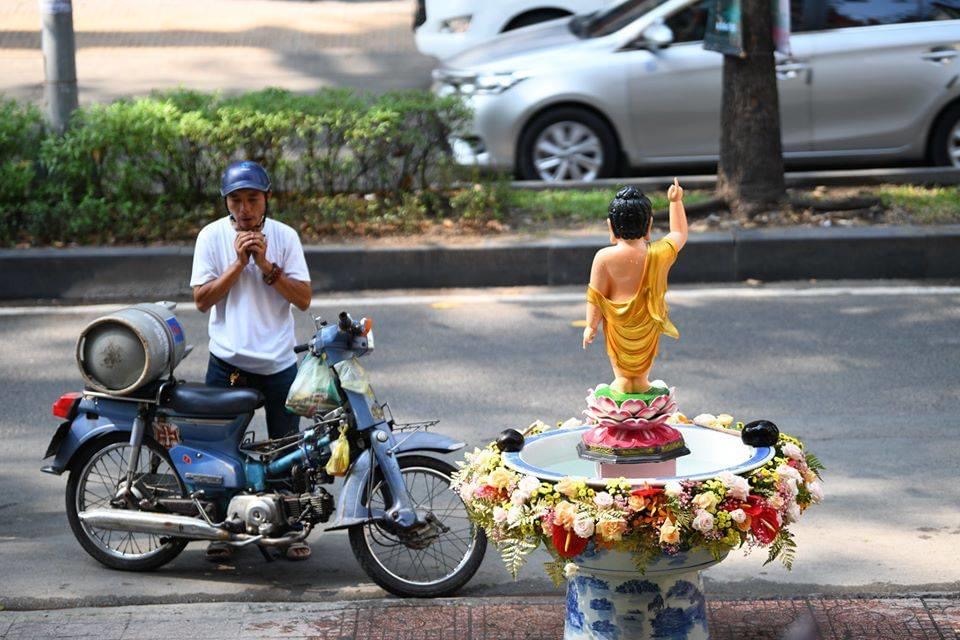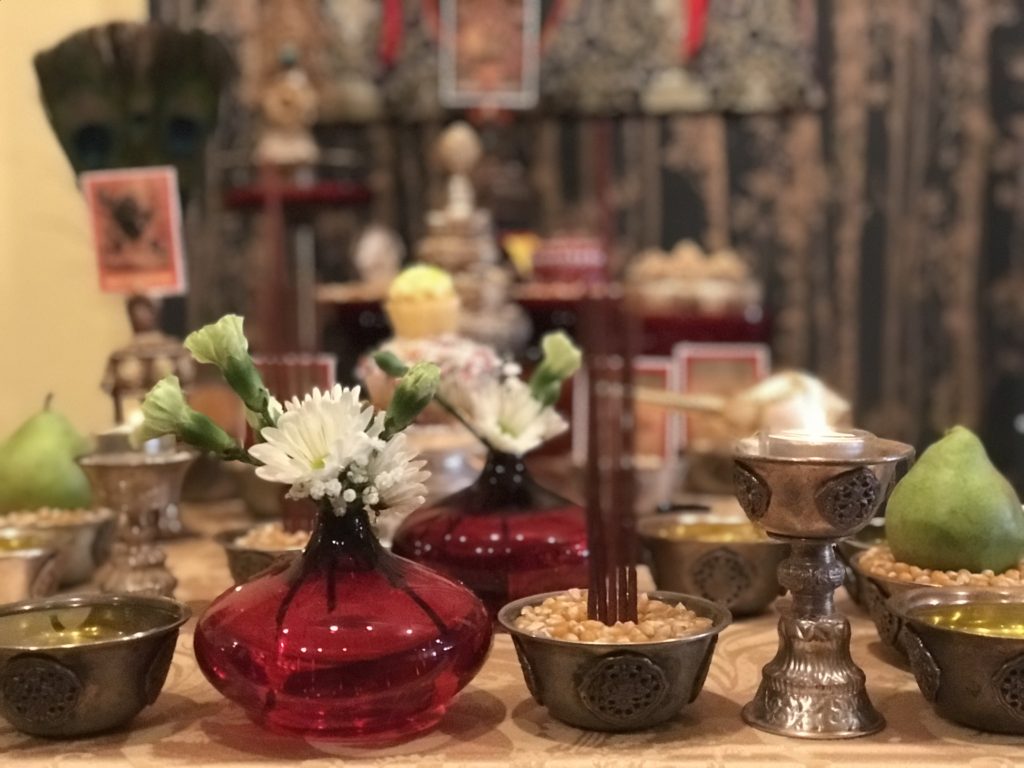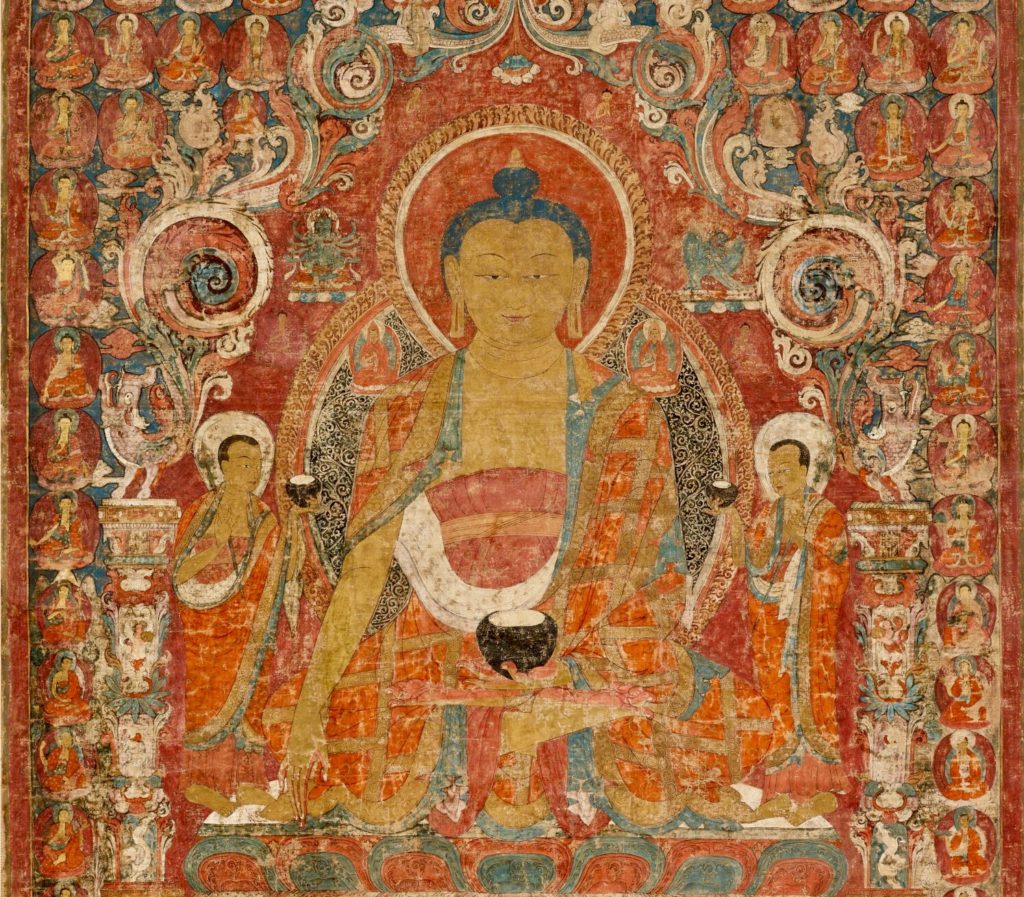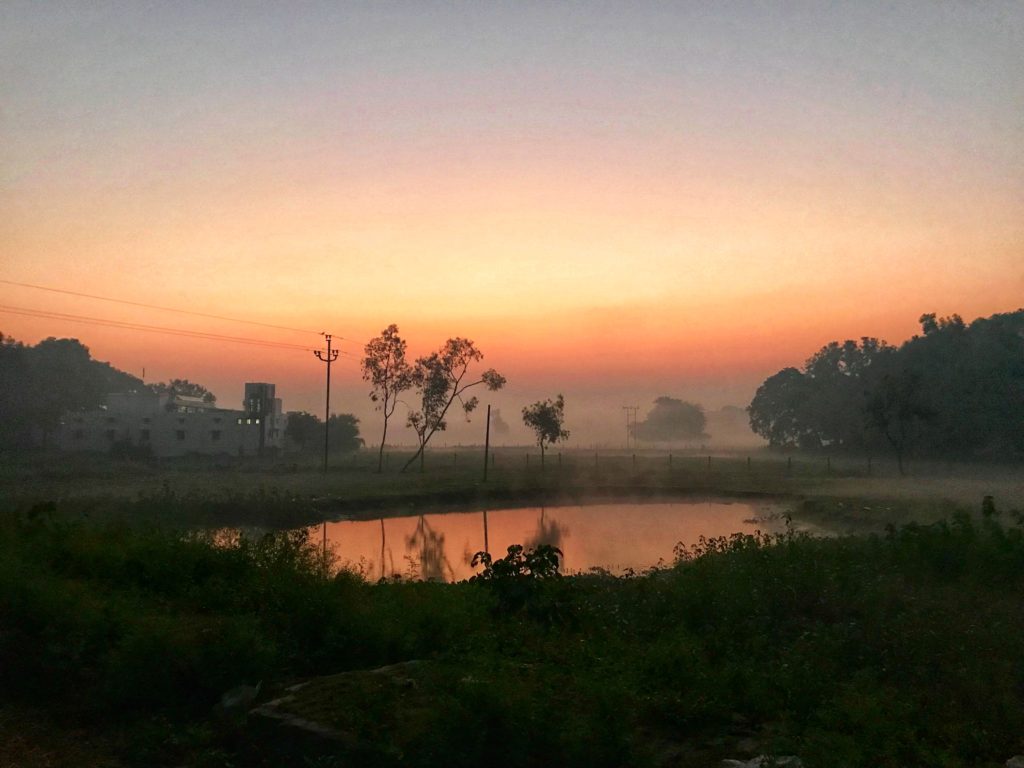Uncommon recitations for generating bodhicitta taught by Kyobpa Jikten Sumgön known as “Those Who Hate Me,” the famous “Refuge Prayer” by Jowo Atisha & the meditation on “The Four Immeasurables.”
When merit is not dedicated towards the purpose of “the liberation and attainment of all-knowingness of all sentient beings,” it can easily be lost or destroyed when strong afflictive emotions arise. Thus, sincerity in dedicating our merit is of utmost importance.
Seven elements are highlighted in mahāyāna sutras as essential in a complete session of puja-paying homage, offering, confessing, rejoicing, requesting, beseeching & dedicating. This particular version is the most commonly used and it comes from the famous Ārya-samantabhadra-caryā-praṇidhāna-rāja.
One of the most chanted Tara supplications, this Namastāraikaviṃśatistotraguṇahitasahita is said to have been taught as a tantra in 27 verses by Vairochana Buddha. Reciting this praise to Tara in 21 verses confers fearlessness & pacifies all negativities.
Translated by Konchok Yedor during the Month of Miracles of the Iron Ox Year (2021). Completed on the day of “The Great Festival of Miracles,” at the auspicious conclusion of a 16-day international practice & teaching program of “Days of Miracles Thirty-five Buddhas Practice of Clearing of Karmic Obscurations.”
A popular aspiration-prayer for creating the conditions of being reborn in Amitabha’s pureland, this prayer is said to have been taught by Amitabha Buddha himself in a vision to Tertön Mingyur Dorje (1645-1667) when he was just 12.
Credits: Könchok Yedor Personal Archive

